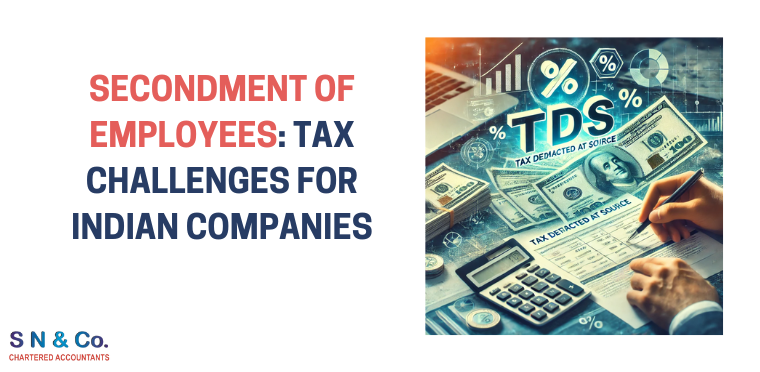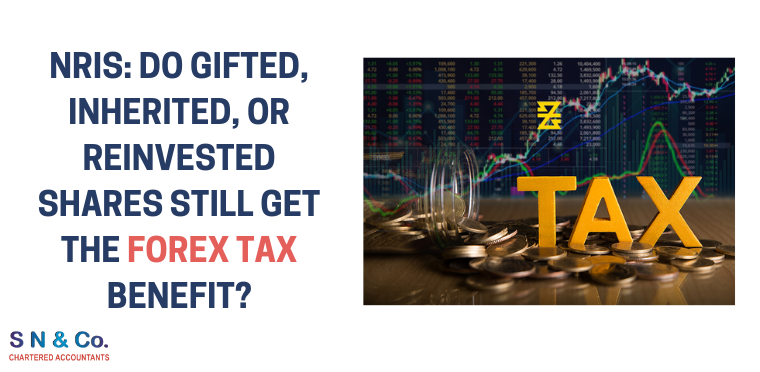Introduction
Seconding employees—whether expatriates working in India or Indian employees sent abroad—comes with significant tax and compliance challenges. Determining the economic employer, classifying salary reimbursements, and adhering to Section 195 of the Income-tax Act and applicable Double Taxation Avoidance Agreements (DTAAs) are critical steps in ensuring compliance. This blog explores the tax implications of secondment arrangements through real-world scenarios, figures, and actionable insights.
Key Tax and Compliance Issues
1. Determining the Economic Employer
- Definition: The “economic employer” is the entity that:
- Exercises control over the employee’s work.
- Bears the economic cost of the employee’s services.
- Tax Impact:
If the Indian company is the economic employer:- The employee’s salary becomes taxable in India.
- The Indian company must deduct TDS under Section 192.
2. Salary Reimbursements as Fees for Technical Services (FTS)
- Definition: Reimbursements made to foreign entities for seconded employees may qualify as FTS under Section 9(1)(vii) if they involve technical or managerial services.
- DTAA Consideration: The “make available” clause in many DTAAs restricts taxation to services that transfer technical knowledge or skills to the payer.
Case Laws and Real-World Scenarios
Case 1: Salary Reimbursement
- Case: Yamazen Machinery and Tools India v. ACIT (149 Taxmann.com 96)
Facts:
- Yamazen Machinery and Tools India (P.) Ltd., an Indian subsidiary of a Japanese company, made salary reimbursements to its parent company for expatriate employees seconded to India.
- The Assessing Officer (AO) classified the payments as Fees for Technical Services (FTS) under the Income-tax Act, 1961, making them taxable in India.
- The assessee contended that these payments were mere reimbursements, made on a cost-to-cost basis, without any profit element and should not be considered FTS.
Issues:
- Whether salary reimbursements for seconded employees qualify as FTS under the Income-tax Act, 1961?
- Whether such payments are chargeable to tax in India?
Judgment:
- The Delhi ITAT ruled in favour of the assessee, holding that reimbursement of salary costs does not constitute FTS.
- Since the seconded employees were under the control and supervision of the Indian subsidiary, and the payments were pure reimbursements with no profit element, they were not taxable in India.
Case 2: Permanent Establishment (PE) Risks
- Case: DIT v. Morgan Stanley & Co. [2007] 292 ITR 416 (SC)
Facts:
- MSCo, a US-based investment bank, engaged MSAS, an Indian entity, for support services.
- Sought an AAR ruling on whether it had a PE in India and the related tax implications.
- AAR ruled that MSCo did not have a Fixed Place or Agency PE but held that a Service PE would exist if employees were seconded.
- Both MSCo and the tax department challenged the ruling before the Supreme Court.
Issues:
- Does MSCo have a Fixed Place PE, Agency PE, or Service PE in India?
- Does stewardship activity create a Service PE?
- Can a non-resident be taxed in India if it remunerates its PE on an arm’s length basis?
Judgment:
- No Fixed Place PE – MSAS only handled back-office tasks.
- No Agency PE – MSAS had no authority to finalize contracts.
- Stewardship activities do not create a Service PE – Oversight was limited to quality control, not service execution.
- Employees on deputation create a Service PE – They remained on MSCo’s payroll and under its control.
- Income attributable to the Service PE is taxable in India, using the Transactional Net Margin Method (TNMM).
- If MSAS is remunerated on an arm’s length basis, no additional tax is required.
Scenarios with Figures
Scenario 1: Expatriates Working in India
- Facts:
- ABC Ltd., an Indian company, seconds an expatriate employee from its UK parent company for two years.
- Annual salary paid: ₹50,00,000.
- Reimbursement by ABC Ltd. to the UK company: ₹50,00,000.
- Analysis:
- The expatriate is under ABC Ltd.’s control, making the salary reimbursement non-FTS.
- Tax Implications:
- Salary is taxable in India as the employee renders services in India.
- TDS under Section 192 applies.
- TDS Calculation:
Assuming a 30% tax rate:
TDS = ₹50,00,000 × 30% = ₹15,00,000.
Scenario 2: Indian Employees Sent Abroad
- Facts:
- XYZ Ltd., an Indian company, seconds an employee to its US subsidiary for one year.
- Annual salary paid by XYZ Ltd.: ₹40,00,000.
- Analysis:
- Salary is not taxable in India as services are rendered outside India.
- The US subsidiary must bear the economic cost to avoid creating a PE.
- Compliance:
- XYZ Ltd. must ensure proper cost-sharing agreements.
Examples of Taxable and Non-Taxable Payments
| Scenario | Taxable? | Reason |
| Salary paid to expatriates working in India | Yes | Income accrues in India under Section 9(1)(ii). |
| Salary reimbursement without FTS elements | No | Genuine reimbursement with no technical services. |
| Reimbursement involving technical services | Yes (FTS) | Payment for technical services under Section 9(1)(vii). |
| Salary paid for services rendered outside India | No | Income does not accrue or arise in India. |
Value Addition: Avoiding Common Pitfalls
- Misclassification of Payments
- Issue: Treating salary reimbursements as operational expenses.
- Solution: Clearly distinguish between salary and FTS in agreements.
- Permanent Establishment Risks
- Issue: Expatriates working under foreign entity control.
- Solution: Ensure the Indian entity supervises and bears the cost.
Conclusion
Secondment arrangements require precise tax planning to avoid disputes and ensure compliance. Businesses must assess the taxability of payments, classify them accurately, and adhere to TDS obligations under Sections 192 and 195. Proper documentation and alignment with DTAA provisions are key to mitigating risks.
Looking for expert advice on managing TDS compliance for secondment arrangements? Connect with our team for tailored solutions and seamless compliance!






